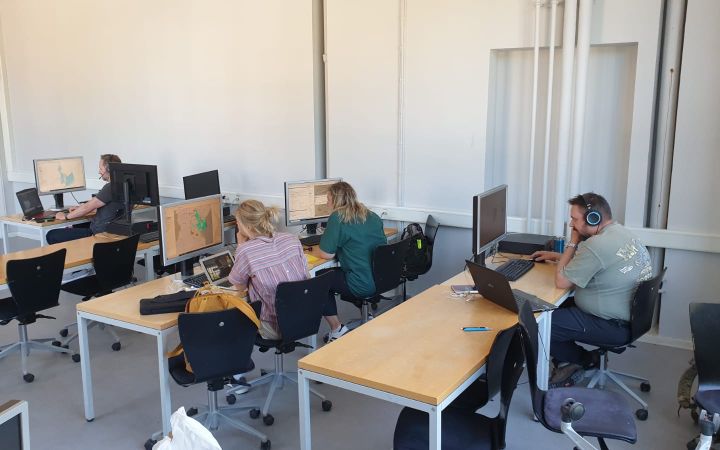3 July 2020 - UNITAR-UNOSAT and the University of Copenhagen co-organized and delivered a 3-week Masters level course entitled “Geo-information in disaster situations” ending on 3 July 2020. The beneficiaries were University of Copenhagen students registered in the Master of Disaster Management programme. Instruction during the first week focused on introductory concepts and essential software applications as well as data analysis and cartographic modelling; it was delivered by the Geography Section of the Department of Geosciences and Natural Resources Management at the University of Copenhagen.
The second week was helmed by UNOSAT and focused more on technical applications, including flood assessments, impact analysis, damage assessment, big data and satellite data analysis and thematic mapping. The week wrapped up with a final GIS assignment featuring a disaster situation and spilled over into the final week, ending with a presentation by participants.
Students were very engaged with the material despite exceptional circumstances resulting from the COVID-19 pandemic. Indeed, UNOSAT adapted its usual face-to-face delivery method to instead deliver modules remotely via Zoom. Thankfully this new approach was successful for us. Instructors were able to convey necessary information and run through all of the modules and students were able to share questions or concerns that they had and competently dispatch all of the content and exercises on offer.
There are clear advantages to being present in situ when it comes to coordinating activities, demonstrating tasks, managing time and answering questions, but this remote delivery was nonetheless a success. Students were satisfied with the quality of the course, stating that “the instructor was excellent, and it definitely helped to see her demonstrate before we tried exercises”. They also expressed appreciation for the expertise of our tandem of instructors as well as the level of detail provided by them and they look forward to learning more in the future to further develop their know-how in the use of technical applications for disaster management.
One of our instructors, Samir Belabbes, had this to say about the event: “We found that students were very eager to learn and ready to engage with the material we had to offer. This is encouraging for future training activities because it shows that beneficiaries want to learn new things and can adapt to new circumstances”


